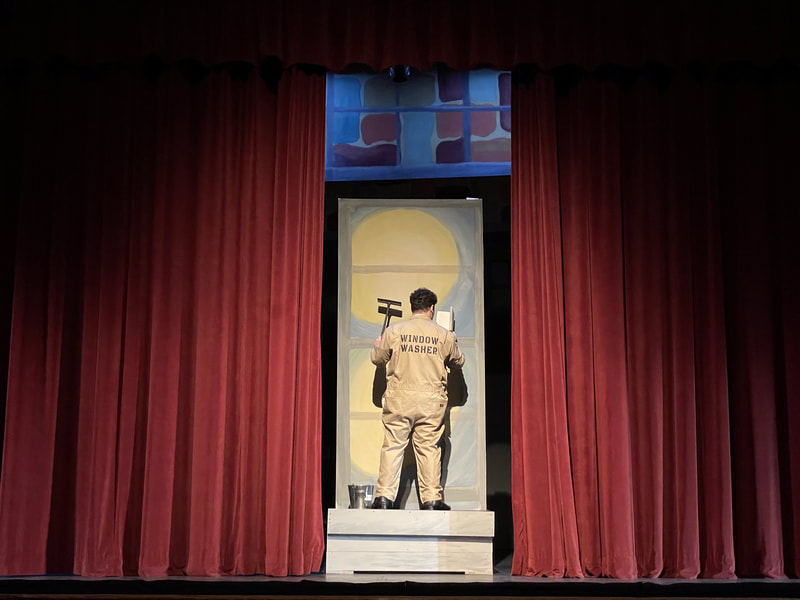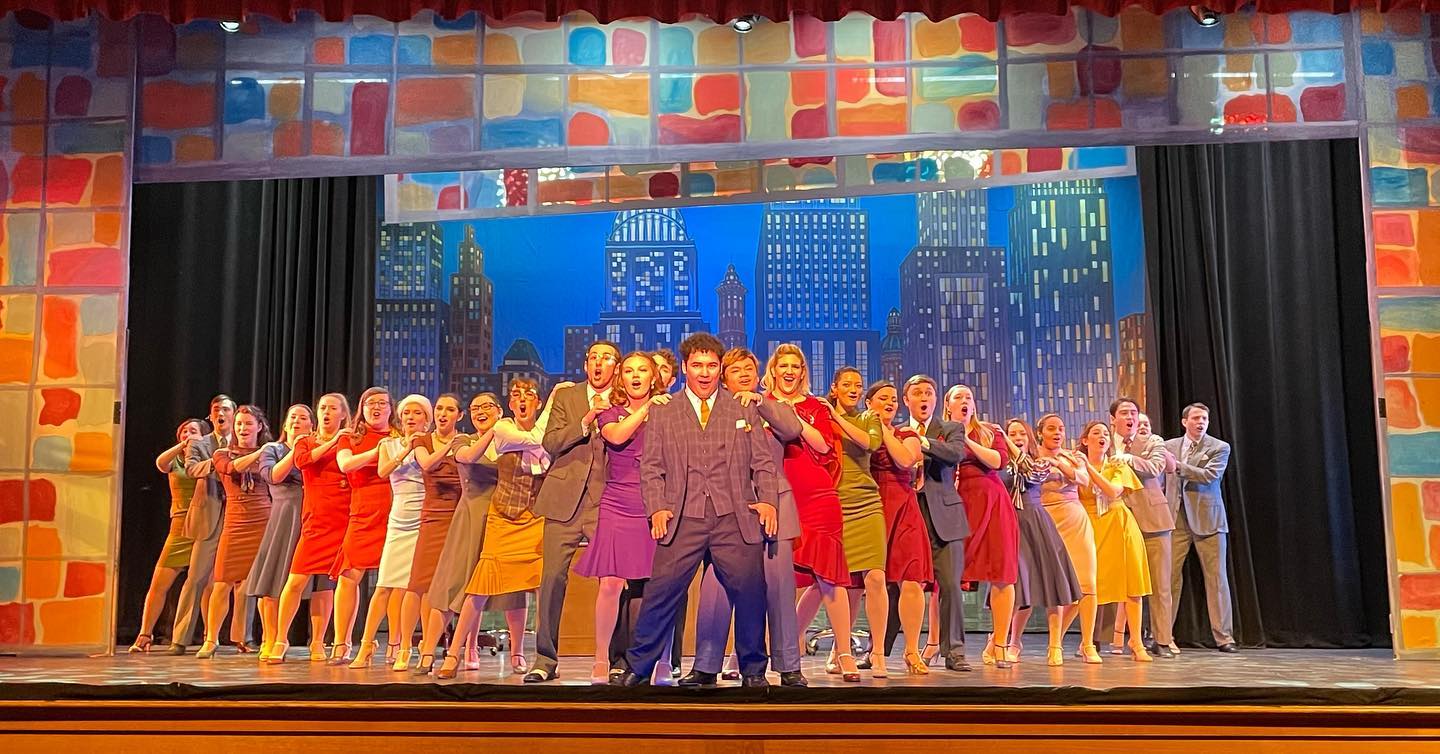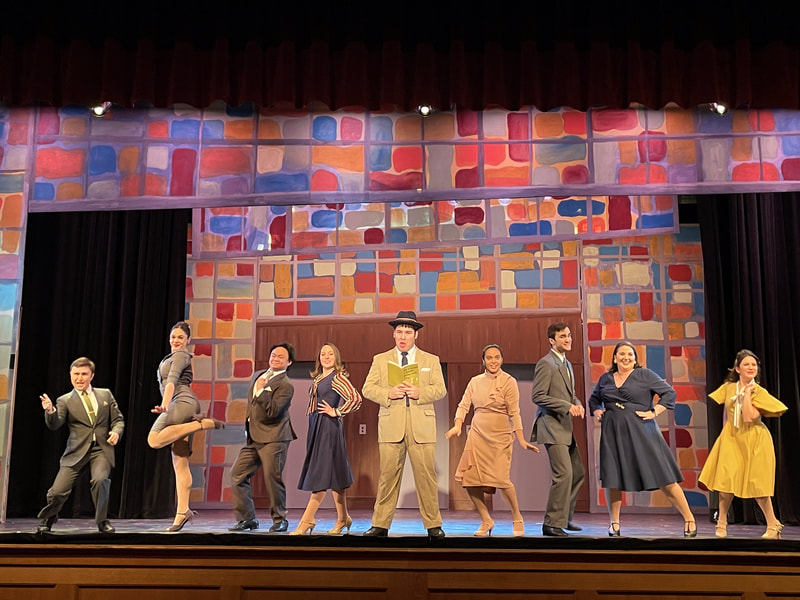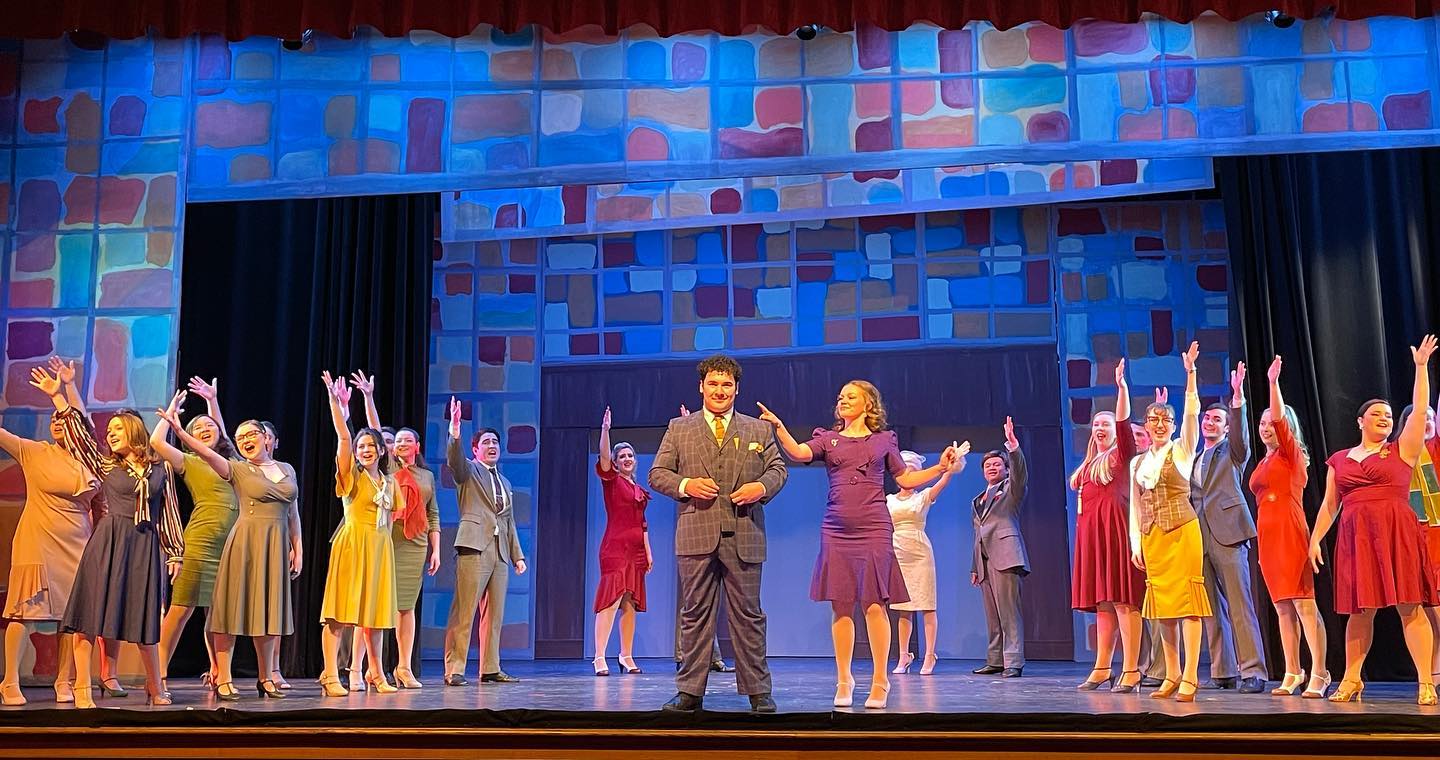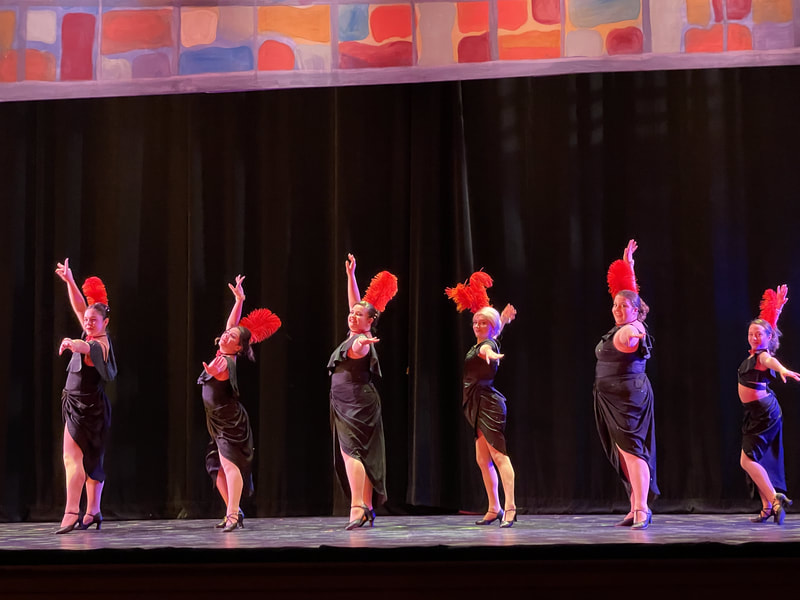DIRECTOR'S NOTE
sat·ire
/’sa-ˌtī(-ə)r/
the use of humor, irony, exaggeration, or ridicule to expose and criticize people's stupidity or vices.
“You grow up the day you have the first real laugh at yourself.”- Ethel Barrymore
Hey there, and thank you for coming to the theatre!
I would like to begin my Director’s note by acknowledging that this performance is taking place on the unceded lands of the Munsee Lenape people along the Mahicantuck River. I honor the Munsee Lenape of the past, present, and future so that I may unwind myself from the consciousness that says “this land is my land.”
In the history of the American Musical, only 10 shows have been awarded The Pulitzer Prize in Drama. Yes, Hamilton is one of them but so too is the show you are about to see; How to Succeed in Business Without Really Trying. Revolutionary for its time, How to Succeed pointed a finger directly at the corrupt and questionable practices of the men and women (but mostly the men) who walked directly from their offices on Madison Avenue and Wall Street to see this musical in the 46th Street Theater in 1961. It was a biting satire written for and about the business professionals of New York City; those who had made a lifestyle of having “dinner and a show” during Broadway’s golden age.
And yet over time, with subsequent star-studded revivals and countless High School productions, How to Succeed has fallen to the ill fate of becoming nostalgic; once a hilarious commentary on sexism, elitism, and corruption it is now, at times, produced to feel a sense of “the good old days.” When I was approached to direct this production, my first thought was “it’s not the show I would have chosen right now.” Most storytelling professionals are awakening to the fact that representation really does matter and I couldn’t fathom staging depictions of sexual misconduct that would be laughed at or (scariest of all) applauded.
What I have realized through this production and the incredibly mindful work of the students, is that I had underestimated the initial intent of the show and the power of laughter. It is my sincere hope to position this show as a satirical battle cry so that we may laugh uproariously at the absurdity of human nature as an entry point into activism and change. Though satire is an exaggeration, I want to be sure to acknowledge that we are exaggerating practices that are still common in the workplace today. 38% of women have experienced sexual harassment in their place of work and 3 out of 4 cases go unreported for fear of becoming one of the 55% of victims who experience retaliation after speaking up (1).
Being that this still is a traditional musical and hoping that a spoonful of sugar really does make the medicine go down, please let this performance be a dump truck of pixie sticks activating each and every one of us to make our workplaces and communities safer, more equitable and more accepting. I know we can. In the words of our protagonist, “I believe in you. I believe in you.”
Sources
sat·ire
/’sa-ˌtī(-ə)r/
the use of humor, irony, exaggeration, or ridicule to expose and criticize people's stupidity or vices.
“You grow up the day you have the first real laugh at yourself.”- Ethel Barrymore
Hey there, and thank you for coming to the theatre!
I would like to begin my Director’s note by acknowledging that this performance is taking place on the unceded lands of the Munsee Lenape people along the Mahicantuck River. I honor the Munsee Lenape of the past, present, and future so that I may unwind myself from the consciousness that says “this land is my land.”
In the history of the American Musical, only 10 shows have been awarded The Pulitzer Prize in Drama. Yes, Hamilton is one of them but so too is the show you are about to see; How to Succeed in Business Without Really Trying. Revolutionary for its time, How to Succeed pointed a finger directly at the corrupt and questionable practices of the men and women (but mostly the men) who walked directly from their offices on Madison Avenue and Wall Street to see this musical in the 46th Street Theater in 1961. It was a biting satire written for and about the business professionals of New York City; those who had made a lifestyle of having “dinner and a show” during Broadway’s golden age.
And yet over time, with subsequent star-studded revivals and countless High School productions, How to Succeed has fallen to the ill fate of becoming nostalgic; once a hilarious commentary on sexism, elitism, and corruption it is now, at times, produced to feel a sense of “the good old days.” When I was approached to direct this production, my first thought was “it’s not the show I would have chosen right now.” Most storytelling professionals are awakening to the fact that representation really does matter and I couldn’t fathom staging depictions of sexual misconduct that would be laughed at or (scariest of all) applauded.
What I have realized through this production and the incredibly mindful work of the students, is that I had underestimated the initial intent of the show and the power of laughter. It is my sincere hope to position this show as a satirical battle cry so that we may laugh uproariously at the absurdity of human nature as an entry point into activism and change. Though satire is an exaggeration, I want to be sure to acknowledge that we are exaggerating practices that are still common in the workplace today. 38% of women have experienced sexual harassment in their place of work and 3 out of 4 cases go unreported for fear of becoming one of the 55% of victims who experience retaliation after speaking up (1).
Being that this still is a traditional musical and hoping that a spoonful of sugar really does make the medicine go down, please let this performance be a dump truck of pixie sticks activating each and every one of us to make our workplaces and communities safer, more equitable and more accepting. I know we can. In the words of our protagonist, “I believe in you. I believe in you.”
Sources
